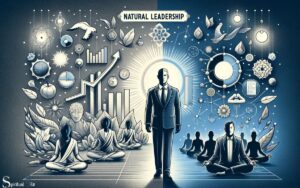Spiritual Healing Vs Mental Strength: Prayer!
Spiritual healing and mental strength are two crucial components of personal development that can significantly impact an individual’s quest for inner peace and resilience.
Spiritual healing involves practices aimed at restoring balance and harmony within one’s inner self, often through meditation, prayer, or other rituals.
Mental strength, on the other hand, refers to the capacity to handle life’s challenges with fortitude and a positive mindset.
Both elements can be integrated to create a holistic approach to wellness, offering a more profound sense of balance and well-being.
The concept of spiritual healing revolves around the idea of connecting with something greater than oneself, which can lead to a sense of peace and purpose.
It often includes:
- Meditation
- Mindfulness practices
- Energy healing (e.g., Reiki)
- Traditional spiritual rituals
Mental strength is about building psychological resilience and cognitive skills that enable one to navigate through life’s difficulties effectively.
It involves:
- Developing coping strategies
- Enhancing problem-solving skills
- Cultivating a growth mindset
- Embracing challenges as opportunities for personal growth
For example, a person might use meditation (a spiritual healing technique) to find calmness and clarity, while also practicing cognitive-behavioral techniques (building mental strength) to change negative thought patterns.

Key Takeaway
Understanding Spiritual Healing

Spiritual healing is a complex and deeply rooted practice that encompasses the belief in a higher power or universal energy for restoring balance and well-being. It involves the understanding that there is more to healing than just physical remedies.
This form of healing focuses on addressing the spiritual and emotional aspects of an individual, recognizing that these elements are interconnected with physical health.
Spiritual healing can take various forms, including prayer, meditation, energy healing, and rituals specific to different belief systems.
It is founded on the belief that an unseen force or energy has the power to bring about restoration and wholeness.
Those seeking spiritual healing often do so to find solace, inner peace, and a sense of connection to something greater than themselves, fostering overall well-being.
Exploring Mental Strength

In exploring mental strength, it is essential to consider resilience in adversity, coping with challenges, and building inner fortitude.
These aspects are crucial in understanding the mental capacity to overcome difficult situations and thrive in the face of adversity.
Building mental strength involves honing these skills to navigate life’s inevitable obstacles with resolve and determination.
Resilience in Adversity
Developing resilience in the face of adversity is an essential aspect of cultivating mental strength. Resilience enables individuals to navigate through challenging circumstances and bounce back from setbacks.
Here are key points to consider when exploring resilience in adversity:
Mindset Shift
- Embracing a growth mindset allows individuals to view challenges as opportunities for growth rather than insurmountable obstacles.
Coping Strategies
- Engaging in self-care practices, seeking social support, and developing problem-solving skills are effective ways to build resilience and enhance mental strength.
Coping With Challenges
Navigating through challenges requires a steadfast commitment to cultivating mental strength and resilience.
Coping with challenges involves developing the ability to adapt to difficult circumstances, manage stress, and maintain a positive outlook.
Building mental strength entails acknowledging and accepting one’s emotions while also being able to regulate them effectively.
It involves developing a growth mindset, where challenges are seen as opportunities for learning and personal development.
Cultivating mental strength also involves setting realistic goals, maintaining perspective, and practicing self-compassion. Additionally, it’s important to cultivate a strong support network and seek help when needed.
Coping with challenges requires the ability to stay focused on what can be controlled, rather than being consumed by circumstances beyond one’s control.
Ultimately, developing mental strength empowers individuals to face challenges with resilience and determination.
Building Inner Fortitude
When building inner fortitude, individuals must cultivate mental strength through steadfast commitment and resilience. This involves developing the ability to confront and overcome challenges, fostering a resilient mindset, and maintaining emotional stability.
To achieve this, one can:
- Practice Mindfulness: Engage in activities such as meditation or deep breathing exercises to enhance self-awareness and emotional regulation. Cultivate a non-judgmental and accepting attitude towards thoughts and emotions, promoting mental resilience.
The Role of Belief Systems

The role of belief systems in spiritual healing and mental strength is a crucial aspect to consider.
Belief systems have a profound impact on an individual’s overall well-being, influencing their ability to cope with challenges and setbacks.
Understanding the influence of belief systems on resilience can provide valuable insights into the connection between spiritual healing and mental strength.
Impact on Well-Being
Belief systems’ impact on well-being is a crucial aspect to consider when comparing spiritual healing and mental strength.
The influence of belief systems on well-being can be profound, shaping an individual’s perception of the world and their ability to cope with challenges.
When examining the impact on well-being, it’s important to consider the following:
Positive Belief Systems:
- Believing in a higher power or purpose can provide comfort and hope, contributing to overall well-being.
- Having faith in one’s ability to overcome adversity can enhance mental resilience and promote a positive outlook.
Negative Belief Systems:
- Holding onto negative or pessimistic beliefs may hinder emotional and psychological well-being.
- Doubting one’s worth or purpose in life can lead to feelings of despair and hopelessness, impacting overall well-being.
Influence on Resilience
In considering the influence on resilience, belief systems play a significant role in shaping an individual’s ability to bounce back from challenges.
Belief systems, whether spiritual, religious, or philosophical, provide a framework for understanding and interpreting adversity. They offer a sense of purpose, meaning, and hope, which are essential elements in building resilience.
For individuals with strong belief systems, challenges are often viewed as opportunities for growth and learning, rather than insurmountable obstacles.
The belief in a higher power, karma, or the power of positive thinking can provide comfort and motivation during tough times, reinforcing the individual’s resolve to overcome adversity.
Additionally, belief systems often promote community and support networks, which are crucial in providing a sense of belonging and assistance during difficult periods.
Therefore, belief systems can significantly influence an individual’s resilience in facing life’s challenges.
Techniques for Spiritual Healing

While there are various techniques for spiritual healing, it is essential to approach them with an open mind and a willingness to explore different practices.
Engaging in spiritual healing can be a deeply personal experience, and it’s important to find the methods that resonate with you.
Some techniques for spiritual healing include:
- Meditation: This practice involves quieting the mind and focusing on the present moment, which can help individuals connect with their inner selves and find peace.
- Mindfulness Meditation: By paying attention to thoughts and sensations without judgment, individuals can cultivate self-awareness and reduce stress.
- Loving-Kindness Meditation: Focusing on sending love and compassion to oneself and others can promote emotional healing and resilience.
These techniques can aid in spiritual healing by fostering self-awareness, inner peace, and emotional well-being.
Building Resilience Through Mental Strength

To develop resilience through mental strength, individuals can cultivate inner fortitude and emotional endurance, complementing the self-awareness and emotional well-being fostered by spiritual healing techniques.
Building mental resilience involves honing coping mechanisms, developing a positive mindset, and fostering adaptability.
The following table outlines key strategies for building resilience through mental strength:
| Coping Mechanisms | Positive Mindset | Adaptability |
|---|---|---|
| Seeking support from others | Cultivating optimism | Embracing change |
| Practicing mindfulness and relaxation techniques | Finding opportunities in challenges | Developing problem-solving skills |
| Engaging in physical activity | Practicing gratitude | Maintaining flexibility |
Integrating Spirituality and Mental Toughness

The integration of spirituality and mental toughness is a pivotal aspect of holistic well-being and personal development.
When considering the amalgamation of spirituality and mental toughness, it’s important to acknowledge the following:
- Inner Strength: Cultivating mental toughness can enhance one’s ability to endure challenges, while spirituality provides a framework for finding meaning and purpose in difficult circumstances.
- Practices: Engaging in spiritual practices such as meditation or prayer can complement mental toughness training, fostering a deep sense of inner resilience.
- Emotional Regulation: Spirituality often encourages self-reflection and emotional awareness, which can aid in developing the emotional regulation necessary for mental toughness.
- Mindfulness: Incorporating mindfulness techniques from spiritual traditions can enhance mental toughness by promoting a calm and focused mindset during adversity.
This integration offers individuals a comprehensive approach to fortifying their well-being and personal growth.
Cultivating Balance and Wellness

Cultivating balance and wellness is essential for overall well-being and personal development.
It involves maintaining harmony in various aspects of life, including physical, emotional, mental, and spiritual well-being. This balance allows individuals to navigate life’s challenges with resilience and adaptability.
Prioritizing self-care, such as engaging in regular physical activity, maintaining a healthy diet, practicing mindfulness and meditation, and nurturing positive relationships, contributes to overall wellness.
Additionally, setting boundaries, managing stress, and seeking professional help when needed are crucial for maintaining balance.
Attaining wellness involves recognizing the interconnectedness of mind, body, and spirit, and making intentional choices to support each aspect.
By cultivating balance and wellness, individuals can experience greater fulfillment, improved mental clarity, and a stronger sense of purpose in their lives.
Is Prayer a Form of Spiritual Bypassing or Authentic Healing?
Prayer can be a powerful tool for spiritual bypassing and healing. Some may use prayer as a way to avoid facing their deeper emotional wounds, while others find genuine healing and connection through their practice. It ultimately depends on the individual’s intentions and willingness to engage in authentic self-reflection.
FAQ About Spiritual Healing Vs Mental Strength
Can Spiritual Healing Replace Traditional Medical Treatment?
Spiritual healing can be a complementary approach to traditional medical treatment, offering emotional and psychological support.
However, it is not a substitute for professional medical care. It can enhance overall well-being but should not replace necessary medical treatment.How Can Mental Strength Help in Overcoming Spiritual Challenges?
Mental strength can aid in overcoming spiritual challenges by providing resilience, clarity, and the ability to navigate difficult emotions and experiences.
It can empower individuals to confront and address spiritual obstacles with courage and determination.
Is There a Specific Belief System That Is Most Effective for Spiritual Healing?
Is there a specific belief system that is most effective for spiritual healing? The effectiveness of a belief system for spiritual healing varies among individuals, as it depends on personal experiences, cultural background, and individual spiritual needs.
Are There Any Risks or Potential Negative Effects of Spiritual Healing Practices?
Potential negative effects of spiritual healing practices include psychological disorientation, dependency on external forces, and susceptibility to exploitation.
It’s important to approach spiritual healing with caution, seeking guidance from trained professionals and understanding potential risks.
Can Mental Strength Be Developed Without Incorporating Spirituality?
Yes, mental strength can be developed without incorporating spirituality.
There are various evidence-based practices like cognitive-behavioral therapy, mindfulness, and resilience training that focus on developing mental strength without the need for spiritual beliefs or practices.
Conclusion
The combination of spiritual healing and mental strength can create a harmonious balance in one’s life.
By embracing belief systems and utilizing techniques for both spiritual healing and mental toughness, individuals can cultivate resilience and wellness.






